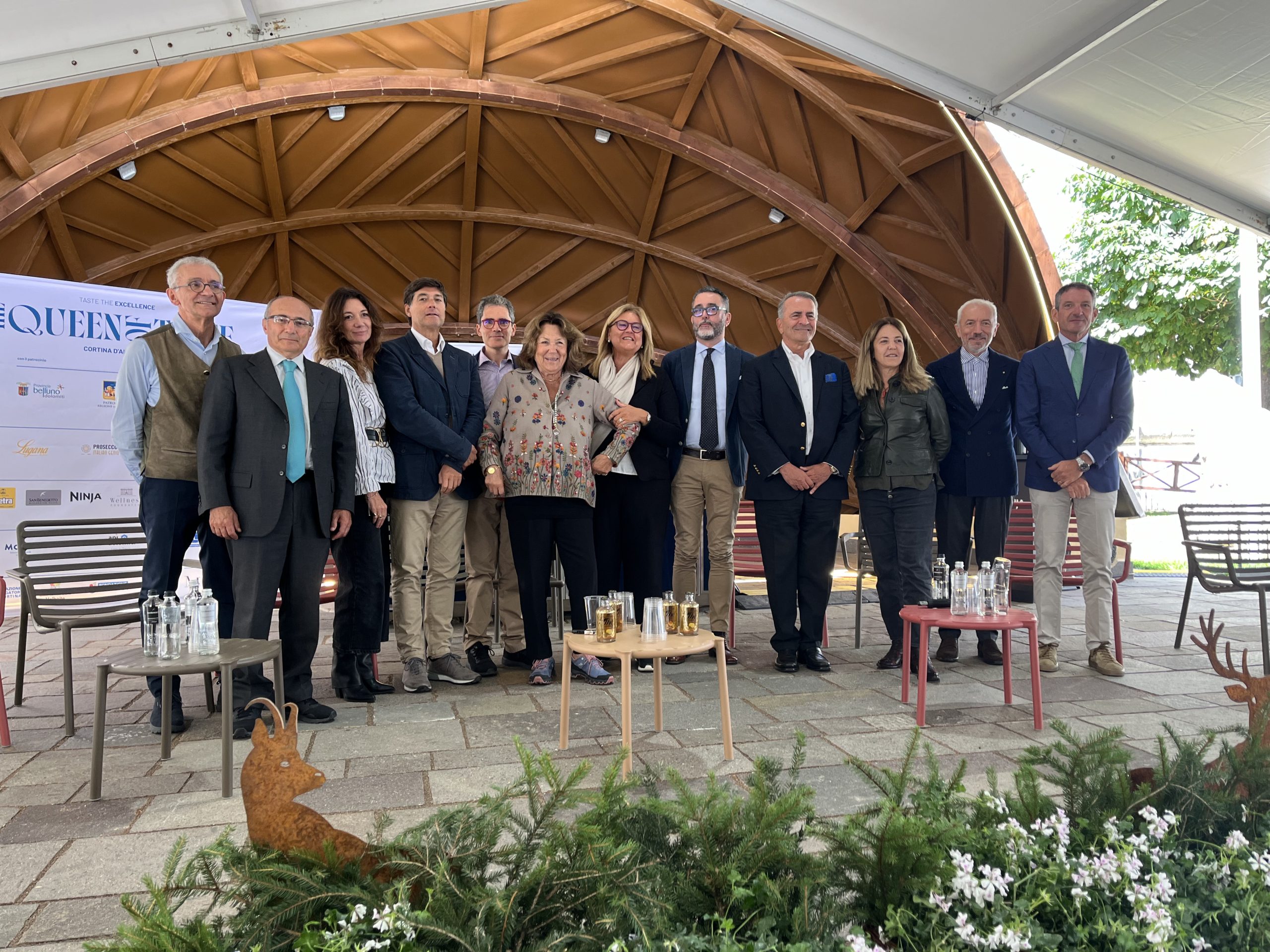
30 May 2024

13 Sep 2024
Cortina d’Ampezzo, September 7, 2024 – During the gourmet event The Queen of Taste 2024, the conference “Italian Cuisine, UNESCO Intangible Cultural Heritage: Knowledge and Flavors of Italian Lands” took place on Saturday, September 7. Organized by Cortina for Us in collaboration with Ega Worldwide Congresses & Events, the meeting occurred in Piazza Dibona, in the heart of Cortina d’Ampezzo. It featured experts from the gastronomic and cultural sectors as well as institutional representatives, all with the goal of bolstering the candidacy of Italian Cuisine as a UNESCO Intangible Cultural Heritage. The conference delved into the value of Italy’s culinary tradition and its role in the global cultural and economic context.
The event began with official greetings from Cortina d’Ampezzo’s Cultural Councilor, Monica De Mattia, followed by remarks from Roberto Milletti, Head of the Technical Secretariat of the Ministry of Agriculture, Food Sovereignty, and Forestry. He highlighted how obtaining UNESCO recognition would be “a crucial step to preserve and promote our rich and inimitable culinary tradition and would ensure the protection and enhancement of our products and gastronomic excellence, thus strengthening the Italy brand beyond national borders.”
The day was opened by Franco Sovilla, President of the Cortina for Us Association, and Emma Aru, Founder and Past President of EGA Worldwide Congresses & Events. Sovilla reflected on the growth of Cortina for Us and the association’s role in organizing this important dialogue on Italian Cuisine among authoritative speakers, while Aru stressed the importance of raising awareness of the biocultural diversity of Italian culinary traditions, strengthening the link between gastronomic heritage and UNESCO.
The conference was divided into two main sections: an introductory lecture followed by two round tables, moderated by Professor Simonetta Pattuglia, a marketing professor at the University of Rome Tor Vergata and director of the Master’s in Communication and Media Economics and Management. In her opening lecture, Pattuglia outlined the pillars of the UNESCO candidacy, highlighting how Italian culinary traditions are a central element of the “Italy brand” and how these traditions can stimulate not only tourism and the local economy but also contribute to attracting investment and boosting exports. According to Pattuglia, UNESCO recognition is a key goal for strengthening Italy’s agri-food sector and ensuring the protection of gastronomic cultural heritage.
During the first round table, Pierluigi Petrillo, professor of Comparative Public Law, UNESCO Chairholder in Cultural Heritage at Unitelma Sapienza, and one of the drafters of the candidacy documentation, illustrated the potential benefits of the recognition, including the growth of food and wine tourism, rural development, and strengthening local economies. Maddalena Fossati, Editor-in-Chief of La Cucina Italiana magazine, emphasized the historic publication’s commitment to promoting and supporting the candidacy, noting how Italian cuisine is a key element in the evolution of global food culture.
Claudia Maria Golinelli, Professor of Event Management at the University of Tor Vergata and President of EGA Worldwide Congresses & Events, reiterated how UNESCO recognition could amplify the country’s appeal, both in tourism and in attracting high-impact international events, such as the 2026 Winter Olympics. Golinelli also announced that EGA will organize the first edition of the 1000 Miglia in Florida, scheduled for February 2025. Professor Enzo Patierno, Coordinator of the PAT – Traditional Agri-food Products Enhancement Project, spoke about the importance of collaboration between the Ministry of Agriculture and the Ministry of Culture, highlighting the work of the National Institute of Intangible Heritage towards UNESCO recognition, also through the Geo-Portal of Food Culture (GECA).
The second round table focused on the economic and marketing aspects related to the candidacy: Professor Roberto Ravazzoni, professor of Business Economics and Distribution Marketing at the University of Modena and Reggio Emilia, highlighted the importance of alliances between territories to achieve common goals.
Paolo Cuccia, President of Gambero Rosso, emphasized the fundamental role of quality tourism as a driver of economic development, linking the upcoming 2026 Winter Olympics with growth opportunities for Italy’s agri-food sector.
Alberto Figna, President of ALMA – The International School of Italian Cuisine, reiterated the school’s support for the UNESCO candidacy, underscoring how ALMA, with its 20 years of activity, represents a stronghold for the enhancement of Italian cultural and artisanal heritage. Luigi Biasetto, Master Pastry Chef and 1997 World Champion, focused on trends in the pastry sector, analyzing different schools of thought regarding sugar use.
The event concluded with the involvement of teachers and students from the Valboite Comprehensive Institute and the awarding of a scholarship by ALMA, followed by closing remarks from the President of Cortina for Us. The President expressed gratitude for the event’s success and the progress made toward UNESCO recognition of Italian cuisine.
The event confirmed the strong commitment of institutions and stakeholders in promoting Italian Cuisine as a UNESCO Intangible Cultural Heritage, laying the foundation for strengthening Italy’s global standing.